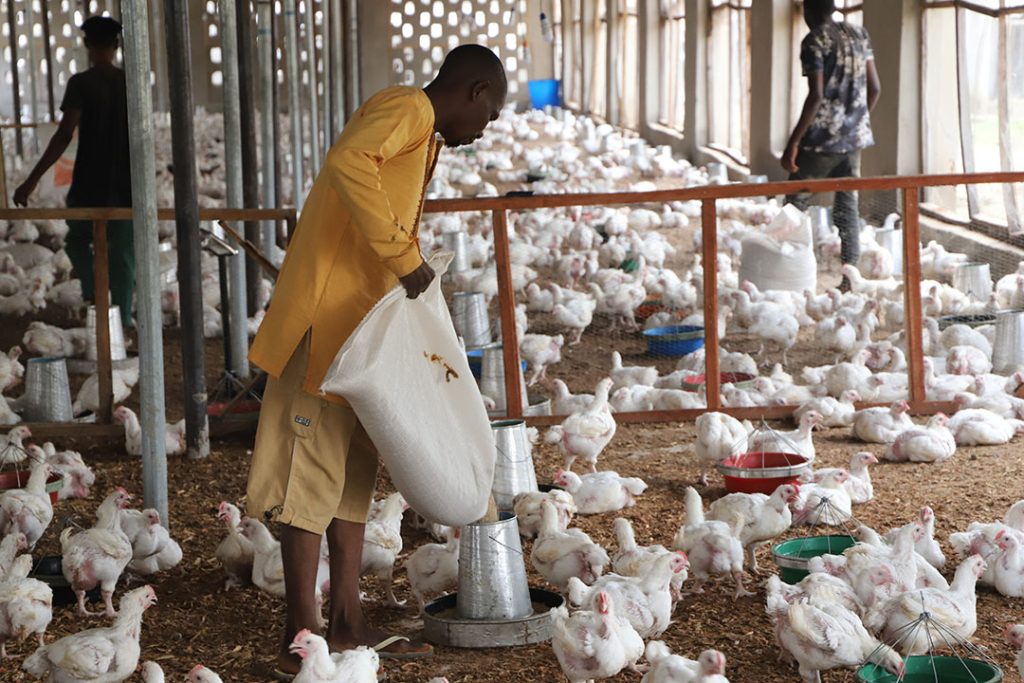Poultry farming remains one of the most lucrative agribusiness opportunities in Nigeria — and for good reason. With a population of over 220 million and rising demand for affordable protein, chicken and eggs are staples in almost every Nigerian home.
But beyond the high demand, poultry farming offers impressive returns when done right. Whether you’re looking to start small in your backyard or scale into a full commercial poultry operation, this guide will walk you through the essentials of starting a poultry business in Nigeria, and how tools like ProInvoice can help you manage your farm like a pro.
Let’s dive in.
Why Poultry Farming is a Smart Business in Nigeria
Here’s why many entrepreneurs are investing in poultry:
✅ High demand for chicken meat and eggs
✅ Short production cycle (broilers mature in 6–8 weeks)
✅ Low startup cost compared to other livestock
✅ Suitable for both rural and urban settings
✅ Quick return on investment (ROI)
Whether you’re a youth, graduate, retiree, or side hustler — poultry farming offers a path to financial freedom and food security.
Types of Poultry Farming in Nigeria
Before you start, decide what kind of poultry venture fits your goals:
1. Broiler Farming
- Focus: Raising chickens for meat
- Maturity: 6–8 weeks
- ROI: Fast turnover
- Market: Eateries, households, frozen food vendors
2. Layer Farming
- Focus: Chickens that lay eggs
- Maturity: Begin laying at 18–20 weeks
- ROI: Long-term and steady
- Market: Egg vendors, hotels, homes, bakeries
3. Cockerel Farming
- Slower growth than broilers but hardy and cheaper to raise
- Popular during festive seasons
4. Hatchery or Breeding
- Focus: Producing day-old chicks
- Requires higher investment and technical knowledge
Steps to Start Poultry Farming in Nigeria
Here’s a simplified roadmap:
1. Decide Your Niche
Start small. If you’re a beginner, broiler or layer farming is ideal.
2. Create a Poultry Business Plan
A plan helps you organize your ideas and estimate your startup costs.
Include:
- Type of poultry farming
- Budget (land, chicks, feed, labor)
- Sales plan
- Operational structure
- Revenue forecast
💡 Need to invoice your buyers or partners later? Use ProInvoice to generate professional invoices quickly.
3. Get a Suitable Location
Select a well-ventilated, secured, and accessible site — either rented or owned.
- Broiler: At least 10 square feet per bird
- Layer: Adequate cage space for egg production
Avoid swampy areas, and keep some distance from residential areas (for smell and noise).
4. Build or Buy Your Poultry Housing
Your birds need a clean, dry, and ventilated space. Housing types:
- Deep litter system: Floor covered with sawdust
- Battery cage system: For layers, offers better egg collection
5. Get Day-Old Chicks from Trusted Hatcheries
Buy from reputable sources like:
- Zartech
- Amo Farms
- CHI Hatchery
- Agrited
Don’t cut corners here — healthy chicks mean better profit.
6. Stock Up on Feed and Equipment
You’ll need:
- Drinkers and feeders
- Poultry feed (starter, grower, finisher)
- Vaccines and vitamins
- Heat source for brooding
Feeding takes up 60–70% of total cost — monitor usage to avoid waste.
7. Hire or Train Attendants (If Needed)
If you’re going commercial, ensure staff know basic hygiene and poultry management. Biosecurity is key!
8. Vaccinate and Monitor Bird Health
Stick to the standard vaccination schedule. Watch out for:
- Coccidiosis
- Newcastle Disease
- Fowl Pox
A vet’s help can save your entire flock.
9. Market Your Poultry Products
- Start selling to friends, neighbors, and local vendors
- List your products on WhatsApp, Facebook, and Jiji
- Supply to frozen food stores or local restaurants
- Offer “farm-to-home” delivery for fresh eggs or chicken
💡 Don’t forget to invoice your buyers using ProInvoice — it builds credibility and makes tracking payments easier.
Estimated Startup Cost for Small Poultry Farm (Broiler – 100 birds)
| Item | Estimated Cost (₦) |
|---|---|
| Day-old chicks (100) | ₦80,000 |
| Feed (3–4 bags/week × 6 weeks) | ₦150,000 |
| Medications/Vaccines | ₦20,000 |
| Housing & Equipment | ₦100,000 |
| Labor/Misc | ₦50,000 |
| Total | ₦400,000 |
💸 After 6–8 weeks, your 100 birds can sell at ₦5,000 each = ₦500,000 revenue. That’s ₦100,000+ in potential profit.
How to Run Poultry Farming Like a Business
Don’t treat it like a hobby. Track income, expenses, and customer orders professionally.
✅ Use ProInvoice to:
- Generate invoices for chicken/egg buyers
- Keep records of sales and customers
- Set due dates and send payment reminders
- Appear professional — especially when selling to hotels, supermarkets, and bulk buyers
Challenges in Poultry Farming and How to Overcome Them
| Challenge | Solution |
|---|---|
| Disease outbreaks | Follow vaccination schedule, ensure hygiene |
| Feed price fluctuations | Buy in bulk, explore alternative feed |
| Poor sales | Improve marketing, target bulk buyers |
| Theft or mortality | Train staff, secure housing |
| Poor record keeping | Use ProInvoice to manage transactions and clients |
Can You Combine Poultry with Other Businesses?
Yes. Many farmers combine poultry with:
- Catfish farming
- Crop farming (like maize, used in poultry feed)
- Egg distribution
- Livestock equipment sales
This creates multiple income streams.
Final Thoughts
Poultry farming in Nigeria is profitable, scalable, and rewarding, especially when treated like a real business — not just a hustle.
Start small, stay consistent, monitor costs, and track every transaction.
And to run your poultry business smoothly — from sales to record-keeping — start using ProInvoice to generate invoices, track payments, and appear professional to your clients.
👉 Ready to get started? Sign up for free here and manage your poultry business like a pro.













